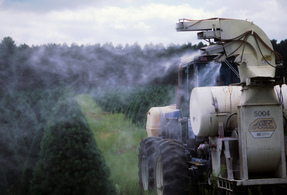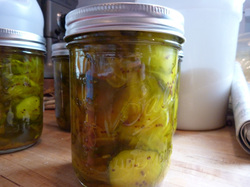 If corn, peas, and green beans are your favorite vegetables, you're in trouble. Those are grains and legumes, not vegetables; and they are carbohydrate heavy. It's time to learn to love veggies. In our experience, most patients are not consuming nearly enough vegetables and fruits. While a vegetarian diet isn't necessary to be healthy, we should all try to increase our fruit and veggie intake. Here are 5 tips to pump up the produce in your meals:
0 Comments
11/17/2015 Research Roundup: Animal Antibiotics Hurt Kids, Bad Medicine, and Healthy Eating Improves Health!Read Now Enjoy the latest research on health care and healthy living: American Academy of Pediatricians (AAP) Says No to Antibiotics in Animal Feed Feeding livestock antibiotics to artificially boost growth is big business and America's Pediatricians are finally saying that's enough. MedPage reported on the AAP's announcement discouraging use of antibiotics in animal fed due to the potential harm for children. While 7.25 million pounds of these drugs are sold for use in humans, more than 32.2 million pounds are sold for use in animals -- animals that often have no active infection. The overuse of antibiotic medication in children was also briefly addressed: "Clinicians bear some responsibility for this problem because we ourselves are not always prudent in our use of antibiotics...Unfortunately, too many people still prescribe antibiotics for colds or sore throats without having an appropriate bacterial diagnosis. So, since clinicians are part of the problem, they can be part of the solution." For your family's safety, choose meat that has been raised without antibiotics or other chemicals. And avoid antibiotic use for common colds, runny noses, and sore throats that are caused by viruses that cannot be killed with antibiotics. Medical Errors Still Alarmingly High Forbes recently reported: "A disturbing new study, published in the October 2015 issue of Anesthesiology, found that medication errors occurred in nearly half of all surgical procedures. Additionally, the study found that one-third of all errors resulted in adverse drug events or harm to patients." The study reviewed surgeries performed at a Harvard-affiliated hospital "considered a leader in patient safety." Clinicians weighing in on the study felt this actually underestimates the number of medical errors. This follows research estimating deaths due to preventable medical errors at 400,000 per year in the United States. Furthermore, these estimates seem to only consider hospitalized medical care, not accounting for other medical treatment. It's always important to recognize the significant risks associated with even "non-invasive" or "minor" medical care, utilizing safer conservative care first whenever possible. Now Some Good News: Americans Are Eating Better And Reducing Disease Don't let us mislead you, researchers still conclude the diet of Americans is "poor". However, an analysis of diet trends (from 1999-2012) found small signs of improvement with a big payoff: 1.1 million fewer premature deaths, 8.6% fewer cardiovascular disease cases, 1.3% fewer cancer cases, and 12.6% fewer type 2 diabetes cases. Good job Americans - now keep going! You're apparently drinking fewer sugary beverages and eating more fruit, but you haven't increased your veggies. Get those veggies in and keep cutting the sweets and carbs. Eat real unprocessed food and get moving!  Pesticides have been linked to health problems like diabetes Pesticides have been linked to health problems like diabetes Recent studies have confirmed an interesting link between the development of diabetes and pesticide exposure. Medpage Today reported that a review of 13 studies on type 2 diabetes found that "people exposed to pesticides such as DDT were 61% more likely to develop type 2 diabetes." Another analysis of 22 studies found "the risk of developing type 2 diabetes was still significantly higher by about 58%" in those exposed to pesticides. One of the scientists noted, "How diabetes develops is considered to be an interplay between genetic and environmental factors...Emerging evidence suggests that environmental contaminants -- including pesticides -- may play an important role in the [development] of diabetes." A separate study linked exposure to pesticides during early pregnancy to a 4.4 times increased risk of developing gestational diabetes. It shouldn't be surprising that using chemicals to poison parts of our environment can have significant effects on our health. The similarity of these chemicals to our body's hormones can potentially cause far-ranging negative effects on our health. You can start reducing your family's pesticide exposure by using the dirty dozen chart.
Permaculture is a system of gardening (and living) that tries to mimic nature by learning from it and applying those lessons. It seeks to minimize waste and the use of external resources (water, chemicals, fuel, etc.) in the most efficient way possible to create a natural abundance. What's all that really mean? Check out these tips for a better idea...
5 Permaculture Tips For Better Gardening
 Stir fry is great. Just avoid the rice. Stir fry is great. Just avoid the rice. One of the biggest hurdles to eating healthy is time, so here are 7 tips to help you save time while eating better:
 How "natural" is your juice? Would you expect processed corn fiber to be added to juice marketed as an "all natural" "100% juice smoothie"? Would you expect synthetically manufactured vitamins to be tossed into your "all natural" beverage? How about industrially made "natural flavors"? Pepsico's recent 9 million dollar settlement of a lawsuit demonstrates how little the "natural" label means when it comes to marketing food and drinks in the United States. While Pepsico led customers to believe its Naked Juice contained nothing but 100% fruit and vegetables, they were adding other surprising ingredients. Pepsico agreed in the settlement to no longer use the term "natural" for its Naked Juice, but it's unclear whether they were actually in violation of the extremely vague regulations regarding "natural" foods. "All Natural" is a term regulated for meats and poultry -- containing no artificial flavors, colors, or chemical preservatives. This leaves food producers a wide opening to claim foods as "natural" when added chemical compounds can be found somewhere in nature. We generally recommend skipping the marketing terms and looking directly at the ingredient list, but this recent settlement shows even the ingredient list can be misleading. The easiest food to trust is what you make at home. Then next best choice would be foods made by small companies that really care about the product they are selling. Otherwise, you may end up with synthetic additives in your "natural" juice.  Is pesticide exposure harming your family? Experts (including doctors) have long told Americans not to worry about being harmed by the chemical cocktails of pesticides, herbicides, and insecticides used to grow our produce bigger, faster, and blemish-free. However, research has now shown that Americans, including newborns, have surprising levels of pesticides accumulating in their bodies. Now that research has linked these chemical to health problems, scientists and medical organizations are finally starting to sound the alarm. American Academy of Pediatrics Recommends Reducing Pesticide Exposure The American Academy of Pediatrics released a new policy statement describing the harmful effects of pesticides and how to reduce exposure. Here are highlights of the AAP statement on pesticides:  You can make fermented foods at home You can make fermented foods at home You may not be familiar with "fermented foods", but you have probably eaten them and enjoyed their probiotic benefits. Yogurt is likely the best known of fermented foods in America, and yogurt makers have recently increased their marketing to educate consumers on the health benefits of probiotics. What Are Probiotics? The National Institute of Health defines probiotics as "live microorganisms (in most cases, bacteria) that are similar to beneficial microorganisms found in the human gut. They are also called 'friendly bacteria' or 'good bacteria'." Our body is swarming with trillions of these bacteria that help our body maintain a balance and stay healthy. A lot of these organisms are in our digestion system to help us digest certain foods. They play an important role in supporting our immune system among other benefits. What Are Fermented Foods? Fermented foods are made with bacteria or yeast that consume their sugars and leave behind lactic acid or alcohol. For our purposes, we are primarily talking about fermentation that increases lactic acid content and not alcohol. This increase in lactic acid helps prevent harmful bacteria from growing, which makes the food safer to eat and allows it to be stored longer. Most cultures around the world include some type of fermented food in their diet. These cultures all found that fermenting foods provides a number of benefits. Fermented foods contain healthy probiotics to keep our digestive system properly balanced, and the process makes certain nutrients easier to digest for us so we can get more out of the food we eat. It also adds a flavorful tang. Common fermented foods consumed around the world:  Fermented foods include cheese Fermented foods include cheese
What If We Don't Eat Fermented Foods? We recommend everyone try to include fermented foods in their diet on a regular basis (at least weekly; daily is better). Watch out for two issues:
If you don't eat any fermented foods, consider a probiotic supplement. These often come in capsule or liquid form. Similar to the foods, just make sure to check ingredients so the company is not including sugars or other unhealthy junk. These should be taken on a regular basis, but can be especially helpful when noticing digestive issues or infections. What About Prebiotics? Prebiotics are indigestible food ingredients that stimulate the growth and maintenance of beneficial gut microbiota. Essentially, it's food that we can't digest, but it feeds healthy bacteria in our gut. While probiotics receive most of the attention, consuming prebiotics are just as important. Soluble fiber from fresh fruits and vegetables serve as prebiotics that feed the healthy organisms in our digestive tract. This is one more reason why its so important to eat lots of fresh fruits and vegetables. Fermented foods are great because they can provide both probiotics and prebiotics in one tasty package.
We should also consider avoiding foods that feed unhealthy bacteria and cause problems with our microbial balance. Limit sugars, artificial sweeteners, and chemicals. Go out and eat some fermented foods today - your gut will thank you. From Oregon State University: Researchers in the Linus Pauling Institute at Oregon State University have discovered yet another reason why the “sulforaphane”compound in broccoli and other cruciferous vegetables is so good for you – it provides not just one, but two ways to prevent cancer through the complex mechanism of epigenetics.  Broccoli is more than just good looks Sulforaphane, can help restore proper balance and prevent the development of cancer. This is one of the most promising areas of much cancer research. But the new OSU studies have found a second epigenetic mechanism, DNA methylation, which plays a similar role. “Cancer is very complex and it’s usually not just one thing that has gone wrong,” said Emily Ho, an associate professor in the Linus Pauling Institute and the OSU College of Public Health and Human Sciences. “It’s increasingly clear that sulforaphane is a real multi-tasker. The more we find out about it, the more benefits it appears to have.” This research, which was published in the journal Clinical Epigenetics, primarily studied the effect on prostate cancer cells. But the same processes are probably relevant to many other cancers as well, researchers said, including colon and breast cancer. oregonstate.edu For those unfamiliar epigenetics, this is a growing area of research that has revealed the ability of our lifestyle choices (like eating broccoli) to change the activity of our DNA. It won't change the genes, but it can switch them on or off. The natural phytochemicals in broccoli basically flip a switch in your genes that tells them to grow in a healthier way. Epigenetic research has increasingly shown that our daily habits play a powerful role in determining whether we develop heart disease, cancer, and a variety of chronic conditions. Take control of your health and eat your vegetables.
Common cruciferous vegetables include broccoli, cauliflower, kale, cabbage, and brussel sprouts. Mom was right. These veggies pack a powerful nutritional punch. Try to include them regularly in your diet, especially anyone with an increased risk of cancer. Make sure to eat some of these veggies raw to avoid cooking away the beneficial nutrients. When cooking, using lower heat for a limited time is best. Don't cook them into a mush.  There are plenty of excuses for not eating healthy. The most common complaint is that it costs too much. Most won't argue that they could actually save money in the long run by avoiding expenses for health problems related to unhealthy eating. But what about right now? Here's 7 tips to help you spend less now (and later) while eating healthier.
You don't have to be rich to eat healthy. It just takes a little effort, but it's worth it.  Apples: Taste the Pesticides in Every Bite With organic fruits and vegetables now sold in almost every grocery store, is it time to take a bite? Today's fruits and vegetables are regularly doused with a variety of toxic chemicals to keep pests away. Over 50 different pesticides are found on peaches alone. More consumers are choosing organic to avoid potential risks. But when do you get what you pay for? The Environmental Working Group has performed an analysis comparing pesticide levels in common fruits & vegetables sold in America. The resulting Shopper's Guide to Pesticides "ranks pesticide contamination for 53 popular fruits and vegetables based on an analysis of 51,000 tests for pesticides on these foods, conducted from 2000 to 2009 by the U.S. Department of Agriculture and the federal Food and Drug Administration. Nearly all the studies on which the guide is based tested produce after it had been rinsed or peeled." The EWG Shopper's Guide has developed two lists to help you know when buying organic is worth the money. The Dirty Dozen includes produce covered in high concentrations of a chemical cocktail (even after rinsing and peeling). The Clean Fifteen include the cleanest produce that have the least amount of chemical residue.  No Worries Munching on These Onions _The Clean Fifteen: The Dirty Dozen:
Go Forth & Be Fruitful. What we recommendation when considering organic produce:
|
Details
THE NATURALS
AuthorsDr Aaron McMichael + Dr Ryan McMichael Categories
All
Archives
June 2025
_Information and statements made are for education purposes and are not intended to replace the advice of your treating doctor. This blog is not a doctor and will not diagnose or treat your problems.
|
 RSS Feed
RSS Feed